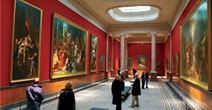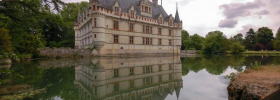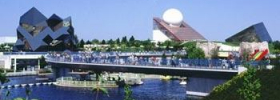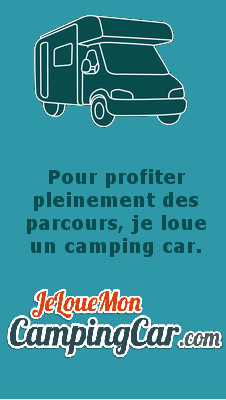 Home
Home- > Tours
- > Champagne-Ardenne
- > Aube
- > Troyes
- > The champagne road
The champagne road
| Topic | Sciences and discovery |
| Departure | TROYES (10) |
| Details | From the south of the Aube department to the borders of the Champagne and Burgundy regions only 1.30 hour from Paris in the 'Côtes des Bars' region that Champagne wine is produced. |
Troyes a medieval jewel
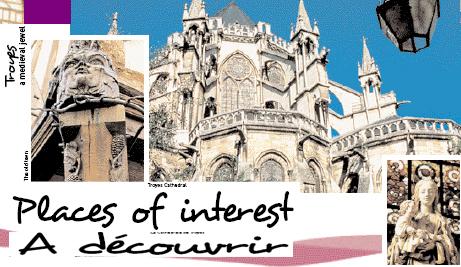
In the old city, you are in the “champagne cork”. The wealthy, commercial area was in the lower part of the city, where the Champagne Trade Fairs took place.
The upper part of the city was surrounded by water and overlooked by the Cathedral of Saint-Pierre and Saint-Paul. Get lost in the maze of restored streets and alleys, and admire this enclave of half-timbered houses, engraved wodden beams, satirical sculptures, turrets.
Each house is different, demonstrating the genius of the builders of the Middle Ages. Take a break in one of the numerous cafés and restaurants littered throughout the streets.
Troyes is the biggest factory outlet centre in Europe where top brands offer very low prices on the previous season’s collections. Three exceptional factory outlets await your visit!
Accommodation nearby
Les Riceys, a legendary perfume
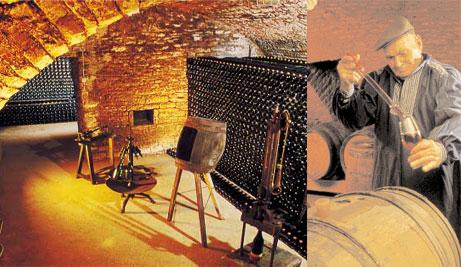
This 870 hectare village, the most important in Champagne enjoys cultivating exceptional wines. Formed of three small market towns of remarkable architecture, this is the only village in the Champagne region to have 3 AOCs appellations. It owes its reputation to the famous “Rosé des Riceys”, a rare wine and Louis XIV’s favourite which very few people had the opportunity to taste; a delicate bouquet of wild flowers, violets and hazelnuts. Even in a good year, the production does not exceed 80 000 bottles.
Don't Miss:
• Art and History Tour including a visit of St Pierre Es Liens de Ricey Bas church. Information available from the Tourism Office.
• Château de Ricey Bas (16th century): a large charming park with its green vegetation, woods and majestic alleys of 180 bi-centenary plane trees.
Accommodation nearby
From Bar-sur-Seine to Mussy-sur-Seine
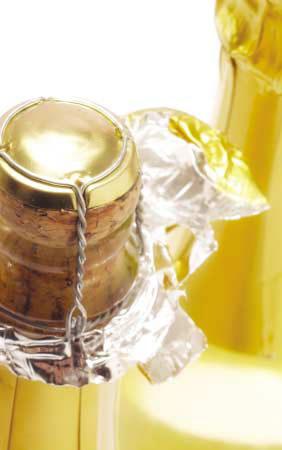
Welcome to the Valley of the Seine.
Bar-sur-Seine has restored and maintained its beautiful half-timbered houses from its prosperous period of the 16th and 17th centuries.
This market town is one of the entry points to the Côte des Bar and the Champagne Tourist Route which leads you to Mussy on the borders of Aube.
Beyond its medieval looks, this little town hides some of the Aube’s richest heritage.
You are strongly advised to wander from church to church along the route before taking advantage of the hospitality of the winegrowers.
Don't forget:
• The Knights Commanderie in Avalleur, 3 km from Bar-sur-Seine.
• Polisy church (12th century), Buxeuil church (12th, X13th and 14th century) and Polisot church (16th century).
• The villages of Gyé-sur-Seine and Neuville-sur-Seine.
Accommodation nearby
From Celles-sur-Ource to Essoyes Renoir's country

The valley of the Ource’s countryside crossed rivers, forests and sunny hillsides and offers some of the most beautiful panoramas of the Côte des Bar. The area seduced Pierre Auguste Renoir, inspiring a variety of paintings, making him adopt Essoyes as his home. Celles-sur-Ource is proud of having the largest percentage of “harvest-producers” of the whole Champagne region but also authentic villages that punctuate this area and allow you to meet numerous wineproducers.
Places for visiting : The Renoir Foundation invites you to find out more about the artist’s life as well as to visit its workshop.
Accommodation nearby
From Bligny to Clairvaux, the soul of the cistercians
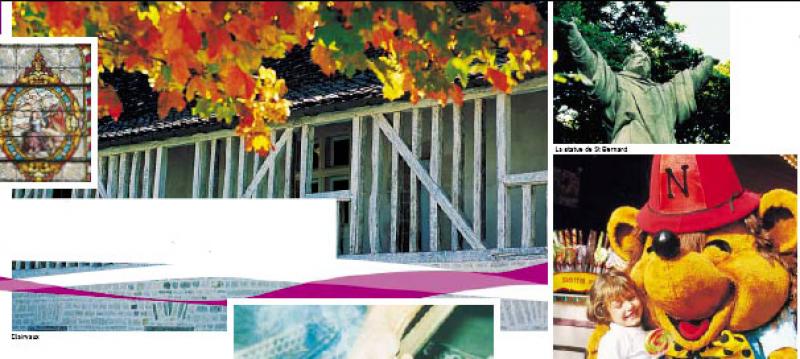
Amongst these vine-clad hills and dense forests Saint-Bernard decided to found Clairvaux Abbey.
Assisted by eleven companions he constructed a building that laid out the principles of the Cistercian style of architecture characterised by its vast emptiness, sobriety and lack of any decoration.
A few steps away, Bayel, home of Champagne’s Royal Crystal Factory,opens its doors into the engravers and glassblowers kingdom, masters in these ancestral arts. After the beauty of stone and the purity of crystal, savour the sparkling magic of the divine nectar.
Places to visit :
- Clairvaux a fascinating abbey This was an ideal location at the crossroads of Champagne, Burgundy and Lorraine, the Kingdom of France and the Empire. Saint-Bernard was able to live in complete self-sufficiently, thanks to the nearby water and dense forest that produced enough energy and raw materials. Founder of many monasteries, Clairvaux is the fruit of Saint Bernard’s convictions and deep faith. Saint Bernard became a major figure of the western world. The monks developed the region, built limekilns, forges, winepresses, cellars and mills, planted vines from Hungary, which a few centuries later produced the wines of Champagne.
- Bayel synonymous with crystal Not far from Clairvaux, Bayel’s village has an international reputation since 1666, thanks to the Royal Crystal Factory of Champagne, created by a Venetian master from Murano. Glass-engravers and blowers have since continued these sophisticated, traditional techniques.
Guided and narrated tours of the workshops from Monday to Friday, at 9.30am and 11.00am (except during French national holidays and weekends).
For further information contact the Bayel, Royal Crystal Factory shop on + 33 (0)3 25 92 42 68.
Accommodation nearby
Latest news on : The Champagne road
Tourism near
 Visit the city of Troyes
Visit the city of Troyes - 6 Museum
- 2 Monuments
Tours
 Troyes
Troyes
 Discovering the Aube district
Discovering the Aube district






















